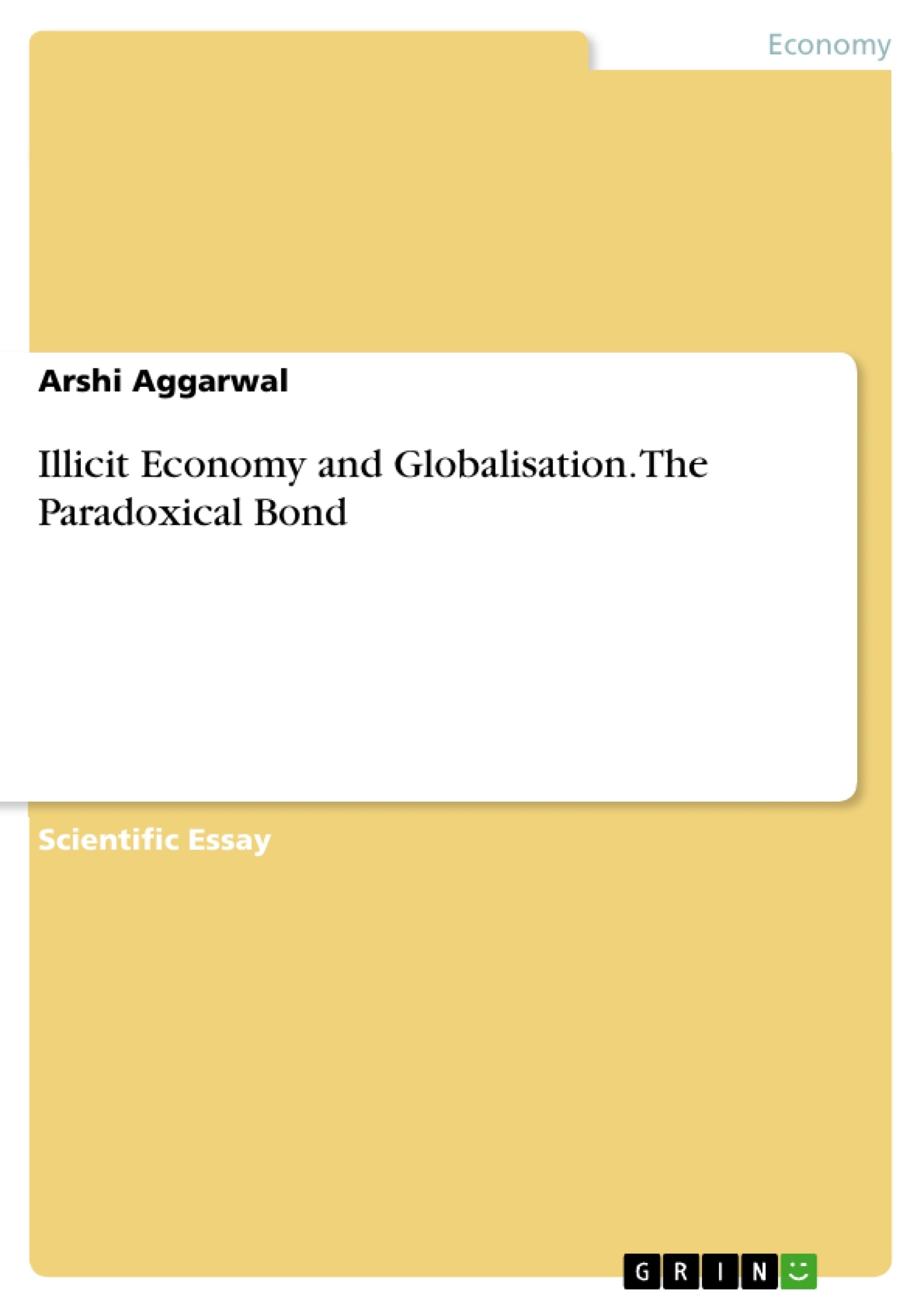To cite an example of global illicit trade, a credit card fraud begins with a Vietnamese shopkeeper in USA as he swipes the customer card in a special fraud machine. This machine electronically transmits card details to Hong Kong crime syndicate, which collects the information from different ports in US to send it to Malaysia for manufacturing of fake credit cards. These cards are then couriered to Italy where another organised crime group sells them to their Russian counterparts in Czechoslovakia. Here these cards are used to make payments for several online orders in London, Paris and Rome; goods are then flown and sold in Moscow, Russia within 200 hours of first card swipe. According to an online estimate, the global illicit market value stands at US $1.78 trillion. The intricacies of its transnational web are far more complicated then its legal counterpart. This essay analyses the relationship between globalisation and clandestine economy of the globe.
Inhaltsverzeichnis (Table of Contents)
- Introduction
- Illicit economy and globalisation
- Is illicit economy globalised?
- The Paradoxical Bond
Zielsetzung und Themenschwerpunkte (Objectives and Key Themes)
This paper aims to explore the relationship between illicit economies and globalisation. It examines the nature of the illicit economy and its global reach, focusing on the paradoxical impact of globalisation on illicit activities.- The definition and scope of illicit economies
- The global nature of illicit activities
- The influence of globalisation on illicit economies, both positive and negative
- The impact of illicit economies on globalisation, including the implications for trade and security
- The potential for synergy between illicit economies and globalisation
Zusammenfassung der Kapitel (Chapter Summaries)
- Introduction: This chapter establishes the context for the discussion, defining the terms "globalisation" and "illicit economy" and highlighting the increasing interconnectedness of nations in the modern world. It also touches on the limitations of available data on illicit economies and the need for further research in this area.
- Illicit economy and globalisation: This chapter delves into the concepts of illicit economies and globalisation, exploring how these two phenomena interact and intersect. It highlights the various sectors of the illicit economy and provides examples of how they have become increasingly globalised. This chapter also discusses the various definitions and perspectives on illicit economies, as well as the challenges of studying this topic.
- Is illicit economy globalised?: This chapter focuses on the argument that illicit economies are in fact more globalised than legal economies, driven by the increasing ease of communication and transportation. It explores the interconnected nature of different illicit activities and how they can contribute to global value chains. The chapter also discusses the role of technology in facilitating illicit activities and the challenges this presents for law enforcement.
Schlüsselwörter (Keywords)
The central focus of this paper lies in the interplay between illicit economies and globalisation. This encompasses various concepts, including the globalisation of illicit markets, transnational organised crime, border controls, trade, and the impact of illicit activities on security and human rights. The paper explores the role of technology and the internet in facilitating illicit activities, as well as the impact of globalization on different sectors of the illicit economy, such as drug trafficking, arms smuggling, and human trafficking.Frequently Asked Questions
How does globalisation impact the illicit economy?
Globalisation facilitates the illicit economy by providing easier communication, faster transportation, and interconnected financial systems, allowing criminal networks to operate across borders more efficiently.
What is the estimated value of the global illicit market?
According to online estimates cited in the document, the global illicit market value stands at approximately US $1.78 trillion.
Are illicit economies more globalised than legal ones?
The essay argues that illicit economies are often more globalised and intricate than their legal counterparts, as they operate through complex transnational webs that bypass traditional border controls.
What are examples of global illicit trade?
Examples include credit card fraud syndicates spanning from the USA to Hong Kong, Malaysia, Italy, and Russia, as well as drug trafficking, arms smuggling, and human trafficking.
What is the 'Paradoxical Bond' mentioned in the title?
The paradoxical bond refers to the relationship where the same mechanisms that drive legal globalisation (technology, open borders, trade) also empower and expand the clandestine illicit economy.
- Citar trabajo
- Arshi Aggarwal (Autor), 2014, Illicit Economy and Globalisation. The Paradoxical Bond, Múnich, GRIN Verlag, https://www.grin.com/document/286208



